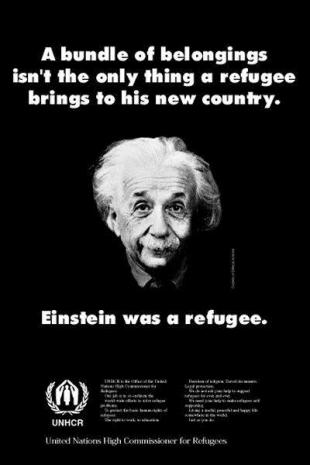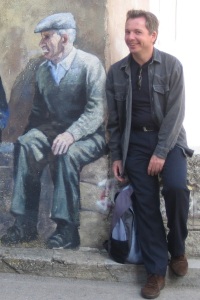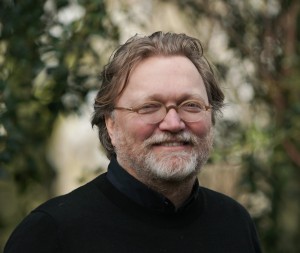 What are you currently working on and what inspired you to start writing it?
What are you currently working on and what inspired you to start writing it?
I am writing a fantasy trilogy, The Guardians of the Tides, that was inspired by two things: one “story night” my daughters gave me three ingredients – a beach, insects, children – and I had to thread a story around them. This became the seed for my story. The second inspiration: I came home one day proudly holding a book of non-fiction I’d just published, and my eldest daughter said, ‘Dad, only people in offices will read this. Can’t you write a book everyone will read, like Harry Potter?’ While I laughed at the wonderful ambitions that children have for their parents, it rekindled a dream I had in my early twenties and I started to develop the story from the earlier story night. Who was I to refuse my daughters?
So, what is the story about?
The Guardians of the Tides a tale of three siblings – Celeste (15), Newton (12) and Clementine (5) Willow – who move abroad to the coastal town of St Estelle after an accident back home makes them chose a new life in France. There they befriend Freya de L’Etoile and her brother, Georgiu de la Roche, a story-teller, who are secret guardians of St Estelle and Travellers of the Mists to the Borderlands. They begin to introduce the Willow children to the secrets of the Tides and Mists, that connects their world to the Land of the Black Sands, the Green Lands and the Land of the Silver Sands. Both Freya and Georgiu have lost loved ones to those lands and want to protect the children from its dangers, but need the Willow children’s help.
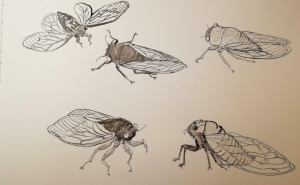 In Book 1: Accidental Creations, the Willows discover strange things swept in through The Tides –phytoluminescent squid, silver-beaked birds, and a fountain of blue letters. They also come across a strange woman in the mists who tries to tempt Celeste across to the Land of the Black Sands, and who sends a box full of black beetles formed out of twisted black words to contaminate St Estelle. Soon Accidental Creations stalk St Estelle – Shadow-people who suck out music through long thin trumpets, Spark-flies that leech colour, and a wooden Golem that saps ideas. Will Freya and Georgiu and the Willow children manage to defend St Estelle?
In Book 1: Accidental Creations, the Willows discover strange things swept in through The Tides –phytoluminescent squid, silver-beaked birds, and a fountain of blue letters. They also come across a strange woman in the mists who tries to tempt Celeste across to the Land of the Black Sands, and who sends a box full of black beetles formed out of twisted black words to contaminate St Estelle. Soon Accidental Creations stalk St Estelle – Shadow-people who suck out music through long thin trumpets, Spark-flies that leech colour, and a wooden Golem that saps ideas. Will Freya and Georgiu and the Willow children manage to defend St Estelle?
 In Book 2: Temptations in the Land of the Black Sands – The Lady of the Black Sands, whose past is closely connected to Georgiu’s, gets her eye on the town’s prodigal son, Darius de Grey, a talented musician, who is infected by living tattoos from the Land of the Black Sands. Darius tries to get back a stolen voice of his ex-love Elodie in this desolate land, but is seduced its secrets – the vast granite cliffs are covered in crystals, each housing the last memory of a passing soul who unravelled in this land. Darius becomes addicted to the stories and music from The Wall of Words and wagers his soul. Freya and Georgiu engage the Willow children to help bring Darius back, but not all ends as it should.
In Book 2: Temptations in the Land of the Black Sands – The Lady of the Black Sands, whose past is closely connected to Georgiu’s, gets her eye on the town’s prodigal son, Darius de Grey, a talented musician, who is infected by living tattoos from the Land of the Black Sands. Darius tries to get back a stolen voice of his ex-love Elodie in this desolate land, but is seduced its secrets – the vast granite cliffs are covered in crystals, each housing the last memory of a passing soul who unravelled in this land. Darius becomes addicted to the stories and music from The Wall of Words and wagers his soul. Freya and Georgiu engage the Willow children to help bring Darius back, but not all ends as it should.
In Book 3, Travellers through the Mists, Celeste gets abducted by the Lady of the Black Sands, who chooses her as her successor. Celeste escapes but is infected by black tattoos that creep up her feet and legs, whispering the longing of souls that have passed through the land. When she meets Freya’s grandson, Asgar, who got captured by the Land of the Black Sands, she must decide about the course of her destiny, which in turn, also affects the destiny of St Estelle. There’s a lot more in the books, so I hope you are not sated by the summaries above.
Where and when does the action take place?
It is a contemporary but also timeless novel taking place in St Estelle, a fictitious coastal town on vast tidal estuarine beaches in France. It also takes places in the borderlands, particularly in the Land of the Black Sands – the land through which souls pass and unravel, leaving their most precious memories or dreams as crystals on the granite cliffs. Their longings raid down as black sands, and the rest of their soul becomes threads of white letters that are abducted by the mists and taken to the Land of Silver Sands, where the souls reside. The Willows manage to get to the Green Lands, a world of unbridled nature, a source of new species reaching St Estelle via The Tides, that, together with the Mists, create a portal between the worlds.
How long have you been working on it?
Close to every day for six years for the trilogy. I sometimes slowed as I focused on other projects – poetry, short stories, and the BWC anthology -The Circle, but it never went far from my thoughts. I’ve a day job, so I write from 7:30 to 8:45 in the mornings before work, and when I’ve time on planes or trains or the sofa.
Did you writing change from book one to book three? How?
Immensely. I think the first draft of book 3 was better than the 11th draft of the first book! (Though I’m in the process of rectifying that).
I had to learn the tools of the craft the hard way in Book 1, PoV, narrative voice, narrative arcs, character arcs, dialogue and inner voice, “show don’t tell”, realistic 3-D characters, active verbs, oh, and the non-trivial issues of grammar and punctuation. When my daughter saw me reading a book on punctuation, she said to my wife that she thought I’d been abducted by aliens and replaced by a doppelganger.
The first two books were in omniscient third person. No matter how close I tried to get to the characters, I always felt a little too far away, so when I got to book three I adopted a new approach – I wrote the chapters led by Celeste, C-Sharp the magpie, and a new character, Amelia, in first person. I really enjoyed that.
What were some of the best and some of the most challenging parts so far?
The best bits came when the characters take over the story, and it writes itself. My crazy little magpie, C-Sharp, drove chunks of book 3 forward, as did Celeste who had to cope with being alone and lost in the Land of Black Sands, gradually discovering its true nature.
I also had so much fun in creating the world and populating it with odd creatures – Freya’s birds and snakes she makes out of letters, the Silver-beaked birds, the Kookaburra made out of chalk and words, and the insane five Sages that form out of seams of crystallised memories smashed together.
I enjoyed creating the contaminating black word beetles that infest everything they touch with longing and even more with the Shadow people that are like cloaked monks that suck music in through their long thin trumpets, leaving but silence.
And one scene that I really enjoyed writing was the one in the Cave of the Five Sages in Book 3. Celeste, Asgar, C-Sharp (the magpie), Kook (the kookaburra), and The Lady of the Black Sands had to solve the riddles of the cantankerous sages.
The challenging part?
I’ll answer in two halves – one half on the process and the other on the writers’ craft. On the process – the getting feedback is, when one can be dispassionately lucid, great. But one has to breathe in deeply and steel one’s nerves and resolve to address yet another writer’s tool discovered in the prose. This is particularly intense (but also rewarding): I sent off the manuscript for a professional manuscript assessment, attended online courses (inter alia, by the inimical Scott Bradfield), and asked for alpha and BETA readers. I got a range of wonderfully positive feedback, but at least an equal amount of critical feedback. It was probably in the ratio of 1 to 2. The positive 1/3 really helps address the 2/3.
So what kind of challenges are there? For me, the main ones are:
- I’ve a lot of characters and with the three Willow children together had a multiple PoV; giving them all space to be themselves, while keeping the text clear and having the reader get attached to the characters has had me rereading and rewriting a lot.
- I like the complex – too much. One sentence should do one thing and do it well. So, I read and reread to make whatever complexity I keep as clear as I can.
- I adore the visual and can forget the emotions. So, I’m forever asking myself ‘how would they react?’ as I reread.
- I’m motivated by curiosity rather than tension, yet accept that readers need tension in a book – they want to read a book and not look at a painting after all. So, I try to see where tension makes sense and try to communicate it to the readers. That said, part of me still believes that novels can be paintings. So, don’t expect a thriller, though I am discovering a darkness creeping into the story while editing.
- I’ve tried to write a cross-over novel that threads in poetic, scientific, metaphysical, philosophical elements (basically anything that I feel exciting and relevant as the story develops), while at the same time keeping it an accessible adventure. The Willow Children in the Borderlands is like a slow-discovery Alice in Wonderland.
And where are you at now? What are your plans after you’re finished?
I’ve been really lucky to receive excellent comments from BETA readers – from big picture comments on character, story arcs, tension, to specific comments that highlight where things could be more powerful, clearer, where to speed up or slow down to emphasise key plot points.
I’ve an intense day job so it will take me at least to the end of 2018 to get the trilogy in a good draft state. In 2019, I’ll start seeing if I can tempt an agent.
So, I suspect it will take another two years before I can dream of it being on the shelves of Waterstones down the road. So be ready for 2020! And I’ve been doing some illustrations to go with the text, so maybe it will be 2021 for an illustrated edition.
As for wider plans, I’m working on a ghost story – The Adventures of Amelia Borgiotti (the short story: Amelia Borgiotti, which forms chapter 1, was published by Coffin Bell Journal this October) – and a collection of poetry: Urban Enigmas.
How did the BWC help you in the course of your work? What was the best feedback you got from the group?
Week in, week out, over two years, the BWC writers give me a good balance of encouragement and critical advice as I read much of book 1 and parts of the other two tomes. Perhaps the best advice:
- The writing is like a De Chirico painting – a beautiful, well-crafted world, but we need more emotions to engage.
- It is poetic, but it needs more tension. Everyone is too nice, and the conflict is with a faceless threat (initially). Make it darker (it is seeping in through the edits…)
- You have stories within the story – this is a risk, make sure you structure the novel well so that the right stories come at the right moment.
- Finally, get that book out there!
Where will it fit on a bookshelf?
In my dreams, it would fit next to Philip Pullman’s His Dark Materials, Ben Okri’s Starchild, Neil Gaiman’s The Ocean at the End of the Lane, Mazuo Ishiguru’s The Buried Giant, C.S. Lewis’ Alice in Wonderland, as well as Studio Ghibli’s works by Miyazaki. I must admit that for a cross-over novel it could fit on different shelves. This is a book I’d have loved to have discovered as a 12 to 15-year old. It is also one I’d welcome reading as an adult who likes Ursula Le Guinn, Neil Gaiman, Jonathan Stroud, Lemony Snicket and JK Rowling.
Who will (the final version of) your novel definitely not be suitable for?
Those who want an action-packed thriller with one main protagonist and an easily recognisable villain and simple linear storyline. Anyone adverse to poetic, philosophical reflections, or a lace-work of parallel, then inter-twining plot lines may be on a new adventure.
We assume that it will one day be published to universal acclaim and that a Hollywood blockbuster will be made from it. Which actors will play the principal roles?
Assumptions are amazing things, but let’s run with it. Now, if dreams were to come true, I’d love the books to become not only a Tim Burton film but also a Studio Ghibli animation. At the moment the book is more Studio Ghibli, but a dose of Tim Burton’s magic would add the darker side that I’ve so far not managed to raise from the sea of words. I’d be very curious about such an adaptation. For Freya and Georgiu: I’d quite like Octavia Spencer (from The Help, The Shape of Water, Hidden Figures) and Robert Downey Jr. (Ironman, Sherlock Holmes) or perhaps even better Albert Dupontel (French film director and actor in the film Au Revoir La Haut) – all aged somewhat, of course.
Octavia Spencer would be a bit more mystical than the characters she plays, and Robert Downey Jr. transforms into a crazy artist. Albert Dupontel would be able to step right into the role with due ageing creams. For Celeste, Newton and Clementine, it gets more difficult. I could imagine an actress like Evanna Lynch (Luna Lovegood from J.K. Rowling’s Harry Potter) for Celeste; Louis Hynes (Klaus Baudelaire in Lemony Snicket’s A Series of Unfortunate Events) for Newton, and I had thought my daughter for Clementine, but this doesn’t work anymore as strange things happen – children grow up. Gina McKee (Mirror Mask, Notting Hill) or Charlotte Gainsbourg (Samba) could both make an intriguing The Lady of the Black Sands. And Benedict Cumberbatch (Sherlock Holmes) could be the violinist Darius de Grey who sells his soul.
In Studio Ghibli the characters would be themselves – I’d be curious to see what they’d look like stepping onto the screen. If I’m allowed another dream to come true, I’d love the astonishing illustrator – Chris Riddell (author Ottolinda series, illustrator of Neil Gaiman’s Neverwhere, and Frances Hardinge’s The Lie Tree) to graphite The Willows, Freya and Georgiu, and the other Guardians into life.
Do follow updates on my Art and Lit Facebook Page: @PatricktenBrinkArtandLiterature

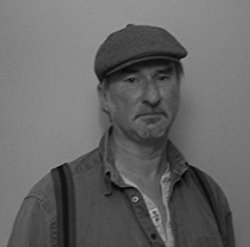 What are you currently working on and what inspired you to start writing it?
What are you currently working on and what inspired you to start writing it?  The title ‘Pages of an Autumn Journal’ originally applied to a pair of poems I wrote at the start of October 2016 – as if they could be leaves torn from a larger diaristic work, such as Louis Macneice’s Autumn Journal, which reflected on personal and public events during the autumn of 1938. I then found myself persistently thinking about that title, and realised that I could collect a larger group of poems from that period together (that first pair now go untitled).
The title ‘Pages of an Autumn Journal’ originally applied to a pair of poems I wrote at the start of October 2016 – as if they could be leaves torn from a larger diaristic work, such as Louis Macneice’s Autumn Journal, which reflected on personal and public events during the autumn of 1938. I then found myself persistently thinking about that title, and realised that I could collect a larger group of poems from that period together (that first pair now go untitled). The Brussels Writers’ Circle features members who are hard at work chipping away at various monumental and epoch-making pieces of literature. Or so we would hope. In this new segment, we interview Sarah Harris about her current masterpiece-in-the-making.
The Brussels Writers’ Circle features members who are hard at work chipping away at various monumental and epoch-making pieces of literature. Or so we would hope. In this new segment, we interview Sarah Harris about her current masterpiece-in-the-making.
 I run poetry workshops and teach English to refugees in Petit Chateau and this last year there has been a huge increase of asylum seekers. In particular young people, mostly from Afghanistan, who arrive here without their families, and attempt to build a new life here. I have recently undertaken a training course to become a guardian for young non-accompanied asylum seekers, so have learnt more about their situation and how refugee policy works in Belgium. This all inspired me to write this story.
I run poetry workshops and teach English to refugees in Petit Chateau and this last year there has been a huge increase of asylum seekers. In particular young people, mostly from Afghanistan, who arrive here without their families, and attempt to build a new life here. I have recently undertaken a training course to become a guardian for young non-accompanied asylum seekers, so have learnt more about their situation and how refugee policy works in Belgium. This all inspired me to write this story.